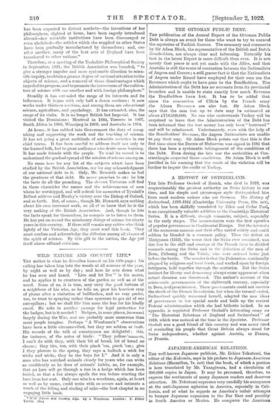A HISTORY OF SWITZERLAND.
THE late Professor Oechsli of Zurich, who died in 1919, was unquestionably the greatest authority on Swiss history in our time, and his simple and picturesque style distinguished him from most modern writers who use German. His History of Switzerland, 1499-1914 (Cambridge University Press, 20s. net), which has been skilfully translated by Eden and Cedar Paul, is an exceptionally valuable addition to the Cambridge Historical Series. It is a difficult, though romantic, subject, especially in the early stages. The mountaineers were the first apostles of popular government in Continental Europe. But the interests of the numerous cantons and their allies varied widely and could seldom be blended in a common policy. Thus the defeat at Marig,nano (1515), the worst that the Swiss ever sustained, was due less to the skill and courage of the French than to divided counsels among the Swiss and to the defection of the men of Bern, Fribourg and the Valais, who were ordered home just before the battle. The wonder is that the Federation, continually plagued by religious and local feuds, and worked upon by foreign intriguers, held together through the centuries. But the Swiss instinct for liberty and democracy always came uppermost when actual disunion was threatened. The author's account of the aristocratic governments of the eighteenth century, especially in Bern, is of great interest. These governments could not survive the shock of the French Revolution, but when the turmoil ended, Switzerland quickly recovered herself, adapted the new ideas of government to her special needs and built up the central Federal administration which she had hitherto lacked. In an appendix is reprinted Professor Oechsli's interesting essay on " The Historical Relations of England and Switzerland " of 1919, which was noticed at the time in the Spectator. Professor Oechsli was a good friend of this country and was never tired of reminding his people that Great Britain always stood for Swiss independence, whether against Austria, or France, or Prussia.


































 Previous page
Previous page